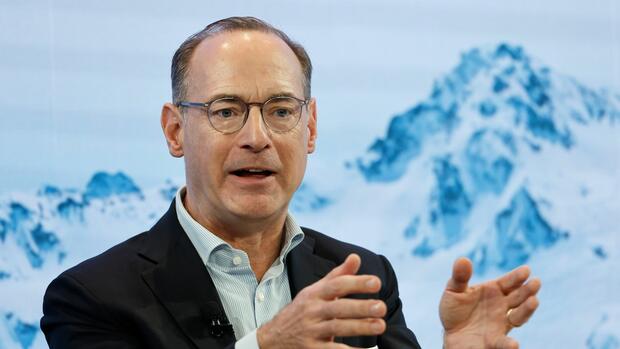Property and casualty insurance drives the company’s profits.
(Photo: Bloomberg)
Munich Allianz exceeded analysts’ expectations in the first quarter. In the months from January to March, Europe’s largest insurer achieved an operating profit of 3.7 billion euros, more than 24 percent more than in the previous year. On average, analysts had expected earnings of just over 3.6 billion euros.
The property and casualty insurance line proved to be the main growth driver. New business with life and health insurance, on the other hand, was well below the previous year’s level. For the year as a whole, the group confirms its profit forecast of 14.2 billion euros, with a range of one billion euros up and down. “Once again, we were able to benefit from our diversified business and achieve a strong performance, especially in property and casualty insurance,” said CEO Oliver Bäte, assessing the result.
For the first time this year, Allianz is reporting according to the new international standard IFRS 17. In order to ensure comparability with the previously applicable IFRS 4 standard, the Group converted the previous year’s figures to the new standard. Accordingly, the total business volume increased by 3.9 percent to 46 billion euros. Many analysts had recently criticized the lack of comparability of the new figures from insurers with the previous year’s figures.
In the meantime, there has been some relaxation in key financial figures, which had suffered in the past few years primarily from high provisions due to the failed Structured Alpha Funds in the USA. Both the return on equity (ROE) and the earnings per share (earnings per share) achieve the planning targets of the three-year strategy “Simplicity at Scale”, which the group had issued for the years 2022 to 2024.
At the start of the year, the return on equity was 15.6 percent, well above the planned 13 percent per year. A year ago it was 12.7 percent. Earnings per share were EUR 5.43, more than five times the EUR 1.02 in the same period of the previous year. An increase of five to seven percent is targeted for the year as a whole.
The main reason for the slump last year were the incidents surrounding failed hedge fund speculation by subsidiary AGI in the USA. The products, called Structured Alpha, cost the company $5.8 billion in compensation and penalties. After an agreement with the US authorities around a year ago, there were already signs of relaxation in the second half of 2022. This also increased the quarterly surplus to two billion euros. In the same period last year it was half a billion euros.
Turkey is a growth driver
In what is usually the most profitable of the three Group divisions, property and casualty insurance, sales rose by an above-average 11.2 percent to 24.1 billion euros. In most regions, both prices and customer demand for insurance cover increased. There was an increase in operating profit, which rose by almost 23 percent to 1.9 billion euros compared to the previous year. Analysts had expected an average of 1.8 billion euros. Business was particularly good on the home market of Germany, while Turkey stood out on the foreign markets despite high inflation in the country.
In addition, business in the “Global Lines” areas is getting going. These include the industrial insurer Allianz Commercial, previously known as AGCS, and Allianz Partners. The company offers travel insurance, among other things, and is therefore feeling considerable demand again after a Corona-related lull.
Turnaround in interest rates weighs on new life insurance business
The turnaround in interest rates and the massive inflation are having a clear impact on the second most important segment, life and health insurance. The operating profit rose to 1.3 billion euros at the beginning of the year after 0.8 billion euros in the previous year. Analysts had expected an average of 1.26 billion euros here. However, the group recorded a significant slump in new business. The cash value of the contributions was only 18.5 billion euros and thus more than twelve percent below the same period last year. Due to the significant increase in interest rates on the capital markets, the once booming business with single premiums has fallen sharply for many life insurers. This was particularly noticeable in Germany and Italy. Sales promotions in the US business were only able to halt the decline to a limited extent.
Strong market fluctuations and high inflation also made things difficult for asset management, the smallest of the three corporate divisions. The area, in which the two asset managers Pimco and AGI are combined, earned only 723 million euros in the first quarter and thus 13.2 percent less than in the same period last year. Analyst estimates averaged 724 million euros. The total assets under management were 2.174 trillion euros, the Allianz asset managers managed 1.668 trillion euros for third parties, 33 billion euros more than a year ago.
The group had already announced a share buyback program of up to 1.5 billion euros on Wednesday evening. It is scheduled to start at the end of May and run until the end of the year.
More: Allianz buys back shares worth billions again.
